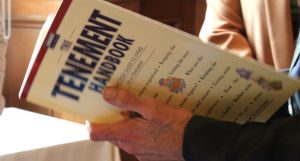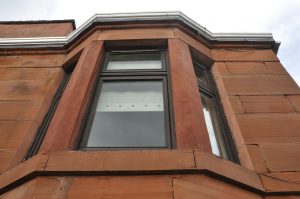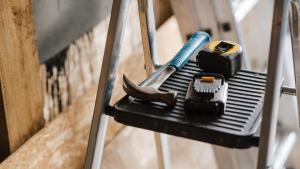Why do you need building insurance?
All owners of tenement flats should have adequate building insurance. For landlords, building insurance is a legal requirement under the Tenements (Scotland) Act 2004. Not having an insurance policy can result in landlords failing to fulfil their legal obligations, facing significant costs if damage occurs to the property, and potentially legal action against them. Building insurance is also often a requirement for mortgage agreements. However, without insurance, owner-occupiers and landlords alike must pay for any damage to their property themselves, even if they did not cause it.
What type of insurance should I have?
There are two types of building insurance: block or common insurance and individual building insurance.
Block or common insurance is cover for every owner in a tenement or block of flats or estate. Some property title deeds require owners to have a block policy, so check your title deeds to make sure. If you have a factor for your building, they are likely to provide common insurance as part of their service. The insurance premium can make up a large part of factoring fees.
Alternatively, each owner within a building can take out individual building insurance. This must cover their flat and common areas of the building, such as the roof and close.
Note that building insurance is not the same as contents insurance. It is ideal to have both buildings and contents insurance.
Landlords can also take out landlords’ insurance to add extra cover and protect against damage caused by tenants.
How much cover do I need?
You can calculate your insurance cover by finding out what it would cost to rebuild your property. The online Building Cost Information Service can provide a rough idea of rebuilding costs for properties built after 1946. However, this is a basic service, and it is recommended to have a Building Reinstatement Valuation carried out by a RICS (Royal Institute of Chartered Surveyors) qualified surveyor every three to five years.
Additionally, check your title deeds to see if they specify any common insurance obligations for your property.
What if another owner in my building doesn’t have insurance?
In the event of a fire or major damage to a tenement block, all owners have to share the cost of rebuilding, even if they didn’t cause the damage. If you don’t have a block or common insurance policy, it is important to know whether your co-owners have adequate insurance. It is not possible to rebuild part of a tenement block, so if one owner does not have the right insurance, there can be problems for every owner.
You can request evidence of insurance from your co-owners. If they can’t show proof of adequate insurance within 14 days, you can take legal action by using the Simple Procedures claim action at the Sheriff Court. But it is important to note that legal action can sometimes cause tension between owners. Consider contacting your local advice centre or community mediation centre first, as they may be able to help.







